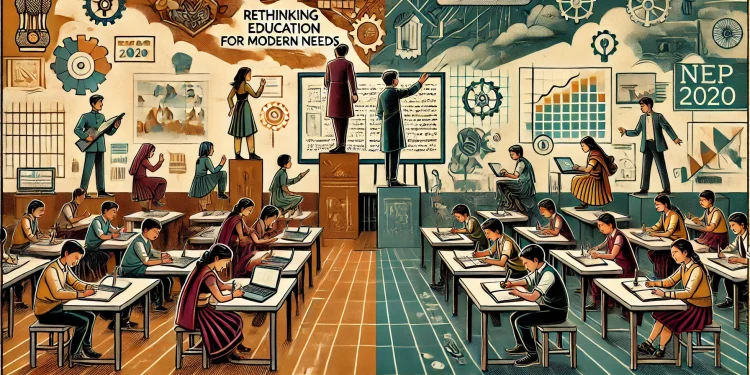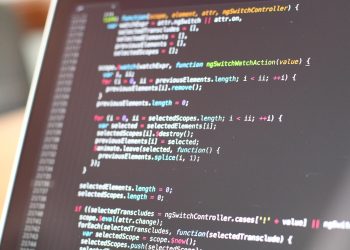No products in the cart.
Beyond Homework: Rethinking Education for the Modern World
Education systems are at a turning point, with global trends and policies like India’s NEP 2020 advocating for critical thinking, experiential learning, and skill-building over traditional rote methods. Discover how these changes can reshape the future of learning.
Education systems worldwide are at a crossroads. As technology, societal norms, and global economies evolve, the traditional focus on rote memorization, standardized testing, and endless homework is under scrutiny. The call to rethink education is not new, but the urgency has never been greater. Reports, studies, and voices from students, parents, and educators all point to one clear conclusion: education needs a systemic overhaul.
What Research Tells Us
Global institutions have emphasized the need for transformative changes in education. UNESCO’s 2021 report, Reimagining Our Futures Together: A New Social Contract for Education, calls for an overhaul to prepare learners for the complexities of modern life. The report states, “Education systems should focus on developing competencies for a future that is uncertain and changing rapidly.” This aligns with the need for critical thinking, creativity, and emotional intelligence over rote memorization.
In India, the Annual Status of Education Report (ASER) 2022 highlighted stark realities in foundational literacy and numeracy. While NEP 2020 aims to address these challenges, ASER reveals that only 20% of Grade 3 students in rural India can read at their grade level. This foundational gap underscores the urgency of implementing reforms that prioritize competency-based education.
What the NEP 2020 Brings to the Table
India’s National Education Policy (NEP) 2020 aims to address these global challenges through specific reforms. The policy’s highlights include:
- 5+3+3+4 Structure: This reorganizes schooling to focus on early childhood care and foundational skills in the first five years, moving away from the rigid 10+2 model.
- Reduction in Rote Learning: NEP emphasizes experiential and inquiry-based learning to develop higher-order thinking skills.
- Vocational Training: Starting from Grade 6, students are exposed to hands-on skills and internships, bridging the gap between academic learning and practical knowledge.
- Assessment Reform: Standardized testing is being reimagined to evaluate application, analysis, and critical thinking rather than memorization.
 News
NewsNTSB Investigates Waymo’s Robotaxis for Illegally Passing School Buses
The NTSB has launched an investigation into Waymo's robotaxis for illegally passing school buses in Austin, Texas, highlighting significant safety…
Read More →These reforms are in various stages of implementation. For example, states like Karnataka and Maharashtra have started introducing mother tongue-based education in primary schools, a key recommendation of NEP 2020. However, scaling these reforms nationwide remains a work in progress.
Vocational Training: Starting from Grade 6, students are exposed to hands-on skills and internships, bridging the gap between academic learning and practical knowledge.
Voices from the Ground
Students, the primary stakeholders of education, have expressed dissatisfaction with the rigidity of traditional systems. A 2022 survey conducted by the Centre for the Study of Developing Societies (CSDS) found that 67% of Indian high school students felt unprepared for life after school. Their primary grievances? Lack of practical skills, mental health awareness, and financial literacy.
Globally, students echo these concerns. In a 2021 OECD study, over 50% of students in 37 countries reported feeling that their curriculum was disconnected from real-world applications. The study emphasized that students are increasingly seeking personalized and skills-based learning paths.
Parents, too, are advocating for change. A 2023 Pew Research survey in India revealed that 72% of parents wanted schools to focus on critical thinking and problem-solving over rote memorization. Parents from urban centers, in particular, are exploring alternative education systems like Montessori and experiential learning programs.
Challenges to Reform
Despite the push for change, significant obstacles remain:
 Business Insights
Business InsightsSection 230 Turns 30: Navigating Its Future Amid Challenges
As Section 230 turns 30, it faces significant challenges that could reshape the internet. This article explores the implications for…
Read More →- Implementation Gaps: NEP 2020’s recommendations require extensive resources, from teacher training to infrastructure upgrades. The disparity between urban and rural schools widens this gap.
- Resistance to Change: Many schools, especially those in underserved areas, still rely heavily on rote methods due to a lack of trained teachers and materials.
- Assessment Overhaul: While NEP calls for competency-based assessments, the deep-rooted culture of high-stakes exams like board exams and entrance tests remains a challenge.
Trends Shaping Education
- Technology Integration: Tools like AI-driven personalized learning platforms and virtual reality classrooms are helping tailor education to individual student needs. NEP 2020’s push for digital literacy recognizes this trend, but rural connectivity issues remain a barrier.
- Social-Emotional Learning (SEL): Programs focusing on empathy, resilience, and emotional intelligence are gaining traction globally. In India, pilot projects integrating SEL into the curriculum have shown promising results, but widespread adoption is still in its infancy.
- Project-Based Learning: Finland’s education system, renowned for its success, emphasizes interdisciplinary and project-based approaches. Inspired by such models, some progressive schools in India have begun integrating similar practices.
What Educators Say
Educational theorists have long criticized traditional education models. John Dewey, a pioneer of experiential education, argued that “Education is not preparation for life; education is life itself.” This resonates with the NEP’s push for integrating life skills and practical learning into the curriculum.
In contrast, critics argue that policies often fail to account for ground realities. Dr. Rukmini Banerji, CEO of Pratham Education Foundation, highlights the gap between policy and practice in her 2023 commentary: “While the vision of NEP is commendable, its implementation must be localized and realistic, keeping in mind India’s vast diversity.”
Trends Shaping Education Technology Integration: Tools like AI-driven personalized learning platforms and virtual reality classrooms are helping tailor education to individual student needs.
The Path Forward
The need to rethink education goes beyond reducing homework or tweaking curricula. It requires systemic change, grounded in equity and inclusivity. Policymakers must:
- Accelerate Implementation of Reforms: NEP 2020’s foundational goals, like universal literacy by 2025, need urgent prioritization.
- Invest in Teacher Training: Teachers are at the heart of reform. Equipping them with the skills to adopt modern pedagogies is non-negotiable.
- Promote Public-Private Collaboration: Partnerships can bridge resource gaps, especially in rural and underfunded areas.
Beyond Homework, Toward Holistic Learning
The call to rethink education is not about discarding the old for the new but about creating a system that prepares learners for the complexities of the modern world. NEP 2020 provides a roadmap, but the journey requires collective effort from educators, policymakers, and communities.
 Education
EducationUnited States Hosts 1.2 Million International Students at Colleges and Universities, Totaling 6% of U.S. Higher Education
The United States hosts 1.2 million international students, comprising 6% of its higher education enrollment, offering significant career opportunities and…
Read More →As the philosopher Paulo Freire famously said, “Education does not change the world. Education changes people. People change the world.” India and the world stand at the cusp of such a transformative moment, where rethinking education is no longer optional but essential. The road ahead is challenging, but the possibilities are boundless.











